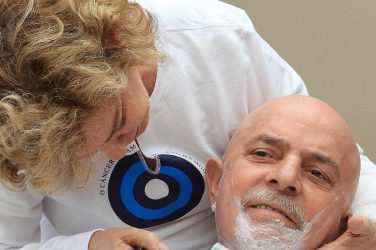
The former president of the Fédération Internationale de Football Association (FIFA), João Havelange, died today, August 16, aged 100 in Rio de Janeiro. He had been in a hospital in the southern part of Rio since July to treat a pneumonia.
A lawyer and businessman, João Havelange was one of the most influential people in the world of sports. As head of FIFA, Havelange was credited with a number of changes in soccer around the world.
Havelange was born on May 8, 1916, in Rio de Janeiro. His passion for sports emerged during his childhood and he became an athlete in his youth. At age 20, he competed in Brazil’s swimming team in the Berlin 1936 Olympic Games. In 1952, he played water polo in the Olympic Games in Helsinki.
Four years later, he became president of the now-defunct Brazilian Sports Confederation (CBD), which brought together 24 sports including soccer. In his 18 years leading the organization, he saw Brazil win the 1958 (Sweden), 1962 (Chile) and 1970 (Mexico) World Soccer Cups.

In 1974, he was elected president of FIFA and became its first non-European leader. With subsequent reelections, he remained in the federation for 24 years, having organized six World Soccer Cups and visited more than 180 countries.
In 1998, he stepped down from his position at FIFA and was recognized as president of honor. He was succeeded by Swiss economist Joseph Blatter.
In 2012, a long legal battle in Switzerland proved Havelange had “defrauded” FIFA. In 2013, he resigned as the organization’s president of honor.
The Brazilian, whose name is used for the track and field stadium for the Rio Games (Estádio Olímpico João Havelange), played a key role in bringing the Olympics to his country. He called on IOC members at the host city vote in 2009 to “join me in celebrating my 100th birthday'” at the Rio Olympics.
Havelange served FIFA from 1974 to 1998, the second longest term in the history of world football’s governing body. Jules Rimet was at FIFA’s helm for 33 years.
An IOC statement said: “Our thoughts are with the family and loved ones of João Havelange at this sad time.
“The IOC has agreed to a request from the Rio 2016 organizing committee to allow the Brazilian flag to be flown at half-mast during the day in Olympic venues.”
FIFA has yet to issue comment on his passing.
Havelange is acclaimed for modernizing FIFA into a multi-billion dollar business, including expanding the World Cup from 16 to 32 teams, and developing the federation’s commercial operations.
But he also created a culture of favors and privileges for top officials that laid the foundation for his successor Sepp Blatter’s corruption-tarnished reign.
Havelange’s reputation took a nosedive in 2011 when, at the age of 96, he was forced to resign from the IOC. In 2013, he quit as honorary president of FIFA over the ISL bribery scandal. In doing so, he avoided any investigation or punishment from the sports’ governing bodies.
Along with former FIFA Ex-Co members Ricardo Teixeira and Nicolas Leoz, Havelange was found to have taken millions of dollars in illegal payments throughout the 1990s from the former marketing partner of the world football’s governing body.
Havelange received at least US$ 1.5 million in kickbacks from ISL, according to the findings of an investigation which followed allegations made in a BBC Panorama program about Havelange and his son-in-law Teixeira’s involvement in the bribery scam. This allowed ISL to secure TV and marketing contracts in the 1990s.
A FIFA ethics probe cleared Blatter. The report of ethics committee chair Hans-Joachim Eckert labeled the FIFA president as “clumsy” for not being aware of the illegal payments.
“It must be questioned, however, whether President Blatter knew or should have known over the years before the bankruptcy of ISL that ISL had made payments to other FIFA officials. President Blatter’s conduct could not be classified in any way as misconduct with regard to any ethics rules,” Eckert’s report said.
Blatter, the disgraced former FIFA president, was suspended last year by FIFA’s ethics committee amid a criminal investigation by Swiss authorities over a scandal involving a “disloyal” US$ 2.1 million payment to UEFA president Michel Platini.
An eight-year ban for ethics violations was later reduced to six years. On August 25, Blatter will appear at the Court of Arbitration for Sport to appeal his six-year ban from football.
ABr/MP







